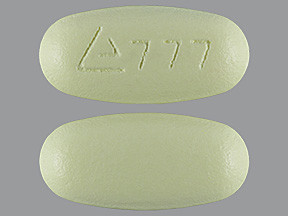CLARITHROMYCIN EXTENDED-RELEASE TABLET - ORAL
PHONETIC PRONUNCIATION: (kla-RITH-roe-MYE-sin)
COMMON BRAND NAME(S): Biaxin XL
GENERIC NAME(S): clarithromycin
Uses
USES: Clarithromycin is used to treat a wide variety of bacterial respiratory tract infections. Clarithromycin is known as a macrolide antibiotic. It works by stopping the growth of bacteria. This antibiotic treats only bacterial infections. It will not work for viral infections (such as common cold, flu). Using any antibiotic when it is not needed can cause it to not work for future infections.
How to use CLARITHROMYCIN EXTENDED-RELEASE TABLET - ORAL
HOW TO USE: Take this medication by mouth with food as directed by your doctor, usually once daily. Do not crush or chew extended-release tablets. Doing so can release all of the drug at once, increasing the risk of side effects. Also, do not split the tablets unless they have a score line and your doctor or pharmacist tells you to do so. Swallow the whole or split tablet without crushing or chewing. For the best effect, take this antibiotic at evenly spaced times. To help you remember, take this medication at the same time(s) every day. The dosage and length of treatment are based on your medical condition and response to treatment. Continue to take this medication until the full prescribed amount is finished, even if symptoms disappear after a few days. Stopping the medication too early may result in a return of the infection. Tell your doctor if your condition persists or worsens.
Side Effects
Precautions
Interactions
Overdose
Images

- color
- yellow
- shape
- oblong
- imprint
- logo and 777

- color
- yellow
- shape
- oblong
- imprint
- logo and 777

- color
- yellow
- shape
- oblong
- imprint
- logo and 777

- color
- yellow
- shape
- oblong
- imprint
- 93, 7244

- color
- yellow
- shape
- oblong
- imprint
- 93, 7244
Reviews
Faq for CLARITHROMYCIN EXTENDED-RELEASE TABLET - ORAL
- Clarithromycin extended-release tablet is commonly used to treat bacterial infections, such as respiratory tract infections, skin infections, and certain types of stomach ulcers.
- It is usually taken orally once daily with food. Follow the instructions provided by your healthcare professional for the correct dosage and duration of treatment.
- Common side effects may include nausea, vomiting, diarrhea, stomach pain, headache, or changes in taste. Contact your doctor if any severe side effects occur, such as allergic reactions, severe dizziness, or liver problems.
- Yes, it may interact with other drugs such as certain blood thinners, statins, antacids, and certain anti-seizure medications. Inform your doctor about all the medications you are currently taking to avoid any potential interactions.
- The duration of treatment varies depending on the type and severity of the infection. It is important to complete the full course of antibiotics as prescribed by your healthcare provider, even if symptoms improve before the treatment is finished.
- It is advisable to consult your healthcare provider before taking clarithromycin extended-release tablet during pregnancy, as it may have potential risks. They can evaluate your specific situation and recommend the most appropriate treatment option.
- This medication is approved for use in children but should be prescribed and dosed appropriately by a healthcare professional. Always consult your child's pediatrician for guidance and dosage instructions.
- If you miss a dose, take it as soon as you remember. However, if it is almost time for your next scheduled dose, skip the missed dose and continue with your regular dosing schedule. Do not double the dose to make up for a missed one.
- Yes, some individuals may experience an allergic reaction to this medication. Seek immediate medical attention if you develop symptoms like rash, itching, swelling, severe dizziness, or difficulty breathing.
Disclaimer
IMPORTANT: HOW TO USE THIS INFORMATION: This is a summary and does NOT have all possible information about this product. This information does not assure that this product is safe, effective, or appropriate for you. This information is not individual medical advice and does not substitute for the advice of your health care professional. Always ask your health care professional for complete information about this product and your specific health needs.
No Reviews Yet